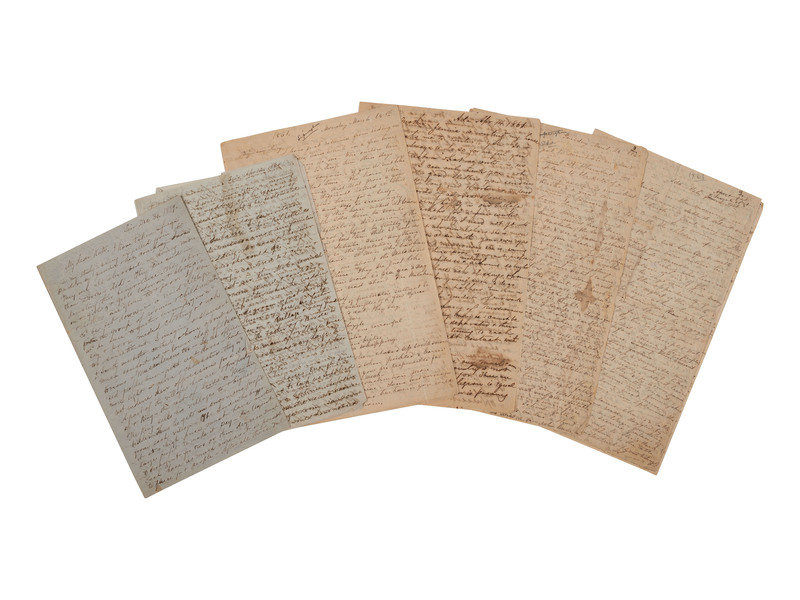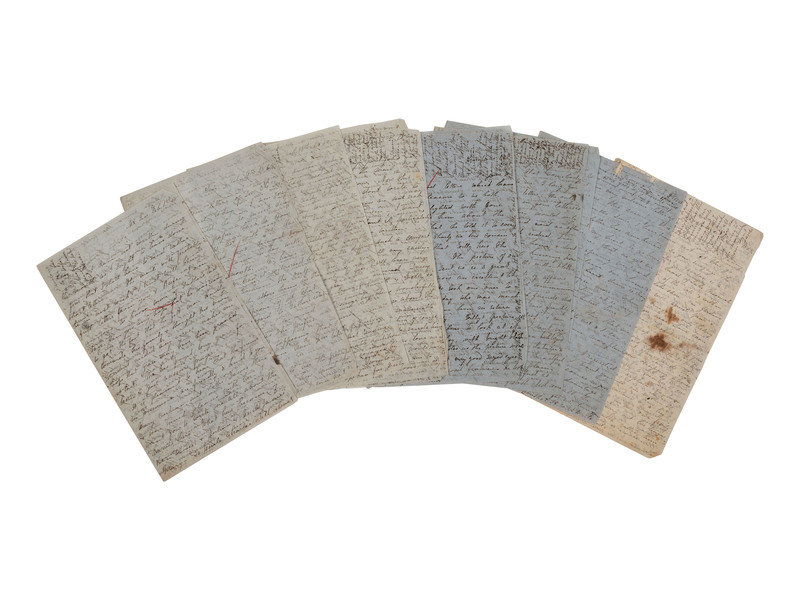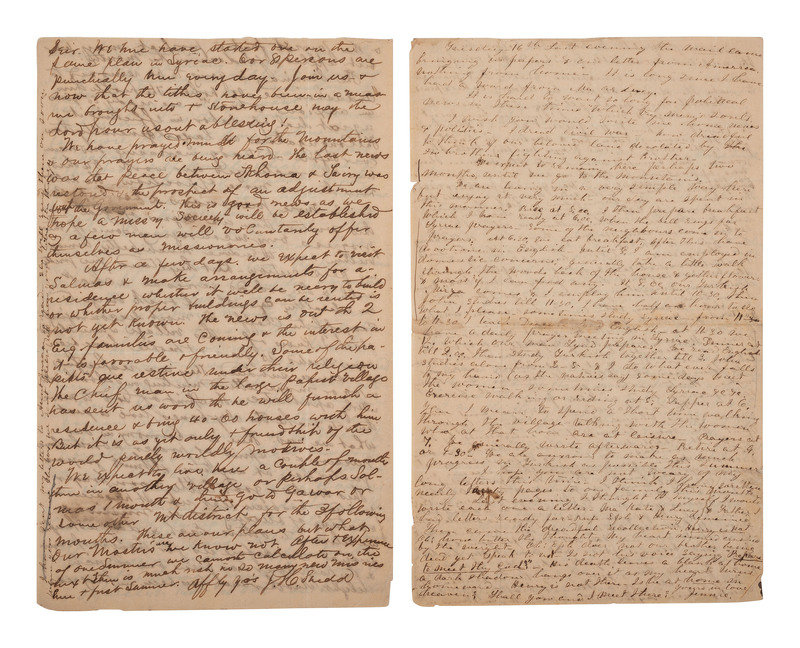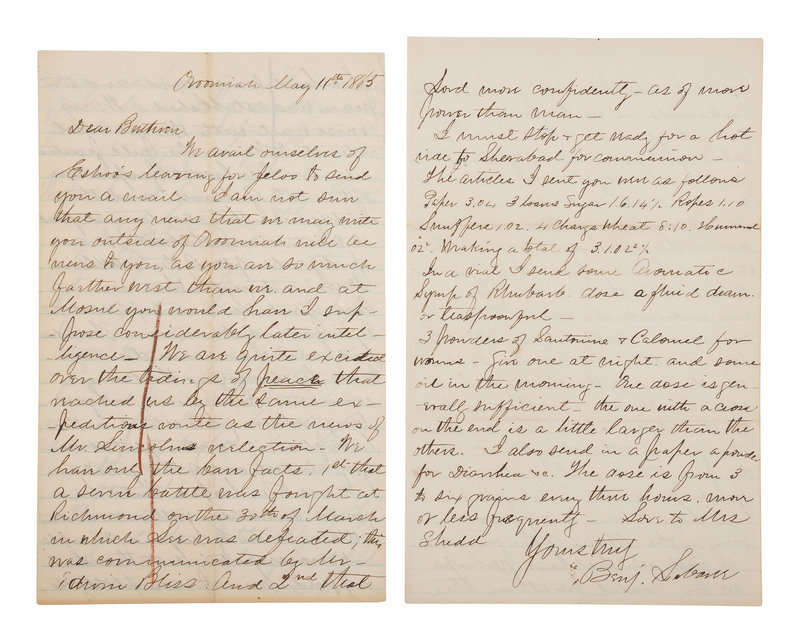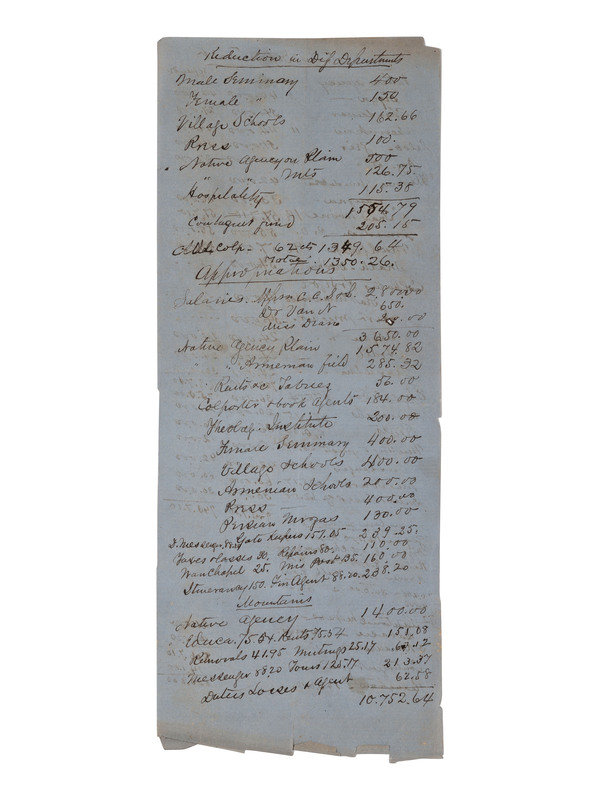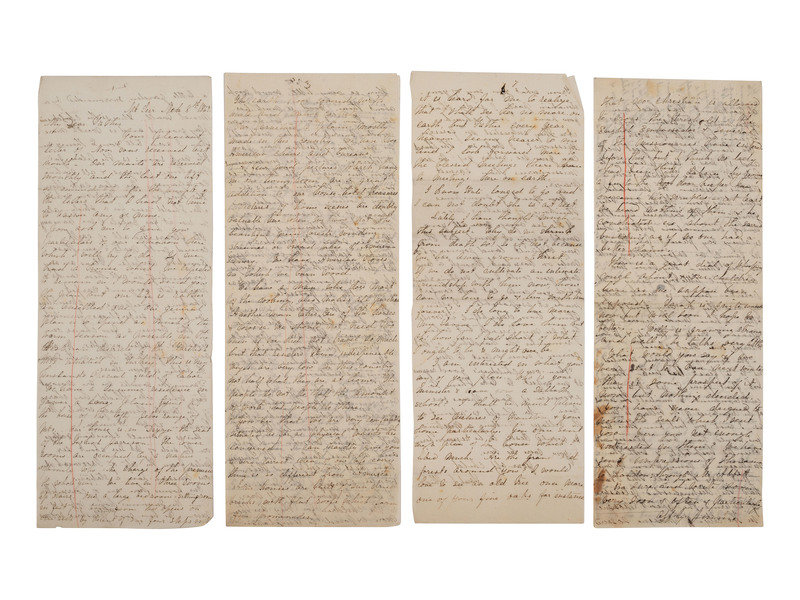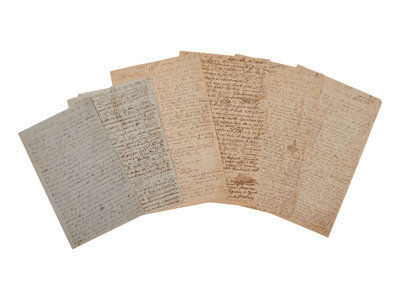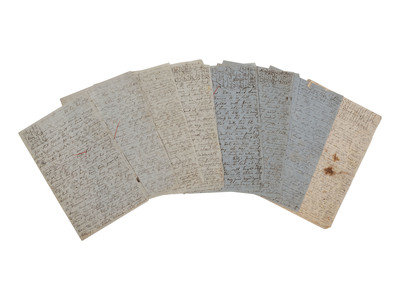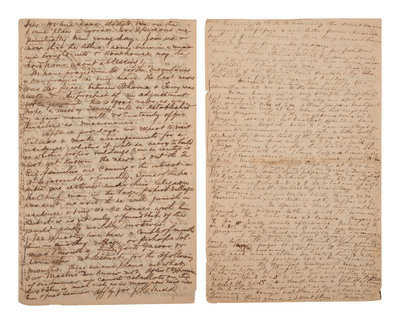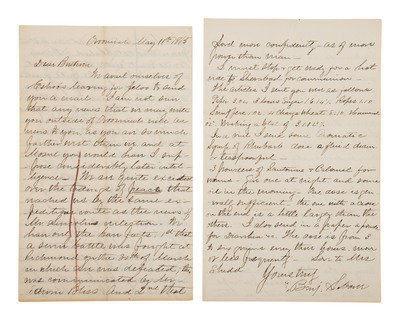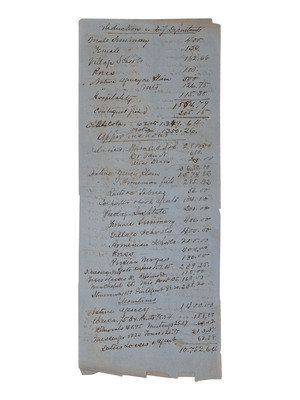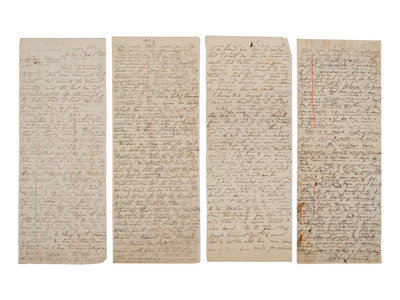Lot 311
Large archive of approximately 88 letters, spanning 1859-1893 (bulk 1861-1869, no letters 1872-1878), sent from various foreign missionary stations including Seir, Gawar, and Oroomiah, in what is now the range between far eastern Turkey, northern Iraq, and northwestern Iran. Letters on thin, lightweight stock, with the usual size of the sheet 8 1/4 x 10 1/2 in. and 8 1/2 x 5 1/2 in. respectively. More than 60 letters written by Sarah Dawes Shedd, with another 20 written by her husband missionary John Haskell Shedd, and 6 by their fellow Presbyterian missionary Benjamin Labaree. Majority of letters are sent by the Shedds to family in the United States, with a small number exchanged between Sarah and John while John was traveling. Sarah's primary correspondents include her mother Sarah Cutler Dawes (1809-1896), and siblings Catherine ("Kate") Dawes McLean (1830-1866) and Lucy Dawes (1833-1898).
The earliest of Sarah's letters dates to May 1861, approximately six months after her arrival in Urumia. The young missionary seems to have settled into her new home and missionary work. The bulk of the correspondence dates to the 1860s, with Sarah detailing to her family via lengthy, closely-written letters her experiences in Persia. Topics discussed include, in part: her fellow missionaries; her husband's work; the native peoples; her children; her home and visitors; challenges faced by the Christians, Muslims, and the poor; travel throughout the region; and commentary on the events unfolding in the United States including the Civil War. Notable are Sarah's descriptions of her encounters with the native people, both Christian, Muslim, and Jewish. Letters demonstrate that far more than just a helpmate for her husband, Sarah is curious, diplomatic, and extensively engaged with the foreign peoples with whom she lives.
4 August 1865: "We spent a night at the house of a Koordish [Kurdish] chieftainess when we came up to Gawar. Our loads had gone on, and a rain coming up had pretty well soaked our clothing and between riding in the the rain and walking down the steep mountains through the mud we were bedraggled and dirtied and tired. We sent a man on before to ask if she would give us a shelter for the night. Soon he came back with the most cordial welcome 'On her eyes, we had come, her house and all in it belonged to us etc etc.' As we rode up to the house in our forlorn condition, to my surprise a fine looking Koord stepped up + assisted me to alight from my horse. Two handsome servants met us in the doorway and led us up stairs to a small mean apartment (mean to eyes that had seen better, but very good to those who dwell in black tents) where the old lady arrayed in black silk velvet, with silver ornaments, sat upon a cloth of coarse red plush. She greeted us most graciously, bidding me sit by her side and petting + praising Charly [Sarah's son, Charles Rufus Shedd, b.1861]. A servant was sitting down over a bright wood fire making bitter coffee. When Mr. Shedd came in the young woman disappeared, but the old lady repeated her compliments. One of her sons (she has six) sat down and with more than oriental politeness paid his respects to me, the Sahib was his brother, the Khanum (lady) was his sister etc. When the coffee was made the old lady reproved the servant for handing it first to the gentlemen and directed it to be handed to me. I mention these little things because they are so unoriental, and show the power of this woman. She was formerly a very powerful chief, before the country was subdued by the Turks and still retains some of her former prestige. Her power like her velvets is now faded, but her pride and her love of authority remain."
3 May 1867: "The seminary steward invited us to a feast last week. They took great pains to to get up a fine entertainment several of the dignitaries of the village to meet us....But more than all this I had the distinguished pleasure of entering the Great Mosque in the city -a mosque so sacred that no Christian is allowed to cross the threshold. The English Embassador & several of the missionaries have entered before this but I think no lady had been...."
19 July [1869]: "On Saturday we went to the Synagogue. The Jews here are few in number & dreadfully oppressed by the Musselmans [Muslims]...I called at the house of the chief Rabbi & his handsome daughters had these fine headdresses & silver chains pendant from that hung under the chin, gold coins attached, bracelets of very pretty silver work & two ring on every finger...[The synagogue] is a good sized room, walls whitened & well-lighted. The women occupy a gallery over the door & over looking the whole...During the service I stood in the gallery while my husband & sons & native friends sat on the [?] seats below...."
Conditions of letters vary, with most exhibiting creasing, minor losses along the edge lines sometimes affecting text, toning, and occasional red pencil marks which likely represent William Ambrose Shedd's markings from an unfinished biography of his father. Some letters appear incomplete, several have large losses affecting text. Overall letters are in good condition and remain legible.
While the missionary work of William Ambrose Shedd and his father is widely documented, Sarah Dawes Shedd's contributions to the success of the mission remain significantly less well-documented. We locate no records for sales of Sarah Dawes Shedd manuscripts at auction, and find no records for her manuscripts in OCLC. Though OCLC indicates that John Haskell Shedd has records/personal papers in the American Board of Commissioners for Foreign Missions archives at Houghton Library, Harvard, the collection finding aid does not indicate holdings for Sarah Dawes Shedd. The archive offered here represents an opportunity to recover Sarah's trailblazing life from relative obscurity, and explore the world of a woman whose travel and adventures took her far beyond the confines of typical nineteenth-century womanhood.
